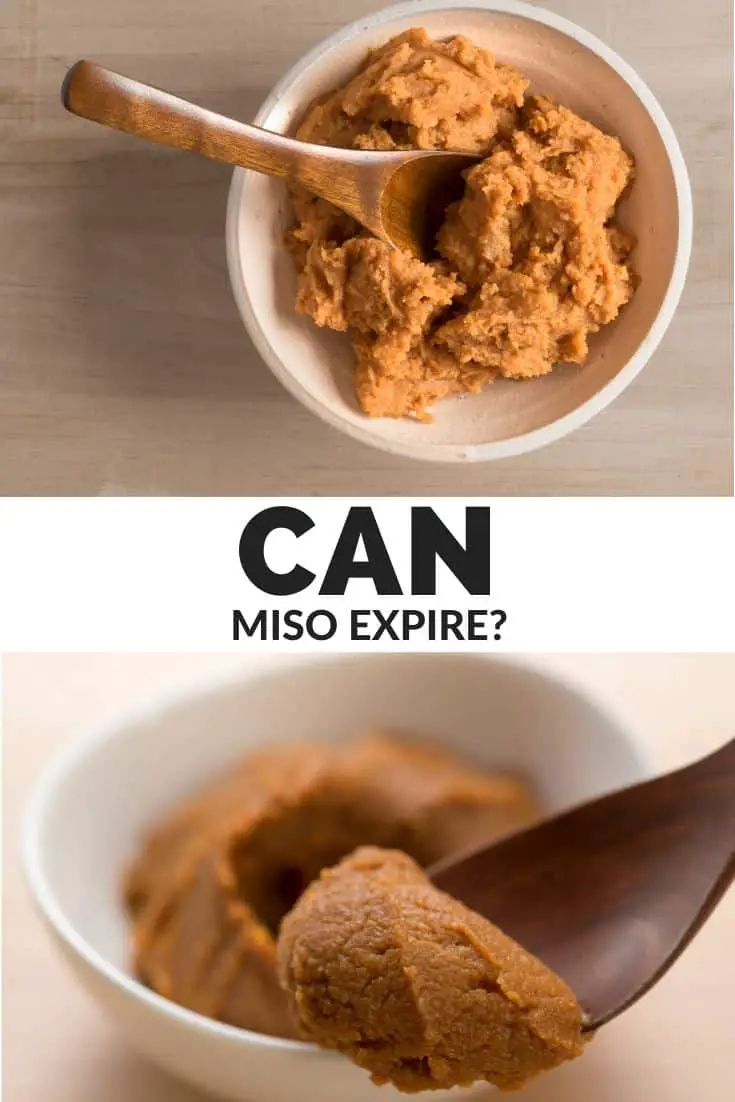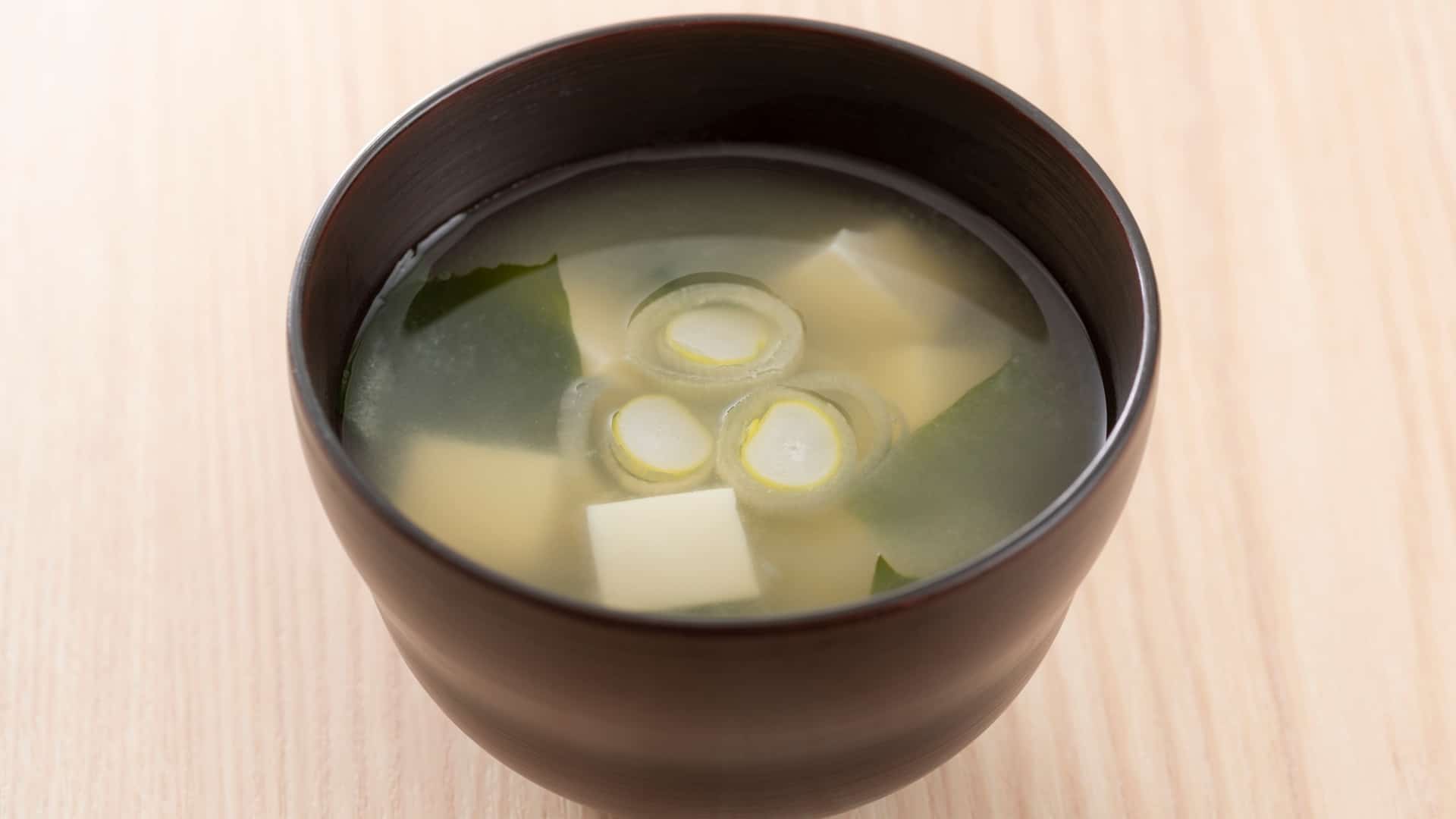Can miso expire? Storage tips & how to tell when it goes bad
If you’ve bought Japanese miso for a recipe, then you probably loved making it. But chances are, you have a lot left over in the container!
It might even be a while before you can finish the whole thing, as most Japanese cuisine recipes only require a tablespoon or two.
Can miso go bad? Can miso expire? And how can you best store it?
We’ll explore all the answers below.

An unopened can of miso probably won’t expire because the fermentation process will keep going. But at some point, the quality may gradually degrade.
It’s also unlikely that opened miso will expire, so long as you store it properly. The more you open the jar, the more prone it is to microbial contamination and quality degradation.
Eventually, you might need to throw it away.

Check out our new cookbook
Bitemybun's family recipes with complete meal planner and recipe guide.
Try it out for free with Kindle Unlimited:
Read for freeIn this post we'll cover:
How long can miso last?
Miso can last long because it’ll keep on fermenting as long as the package is still sealed. It doesn’t even need chemical preservatives!
But once you open it, miso will start degrading in quality and taste.
An unopened jar of miso can last about a year before starting to degrade.
Most companies may put the “best before” label or expiration date on the package to notify the estimated time when the miso would likely start degrading. However, most of the time, miso would still be safe to consume even a few months after the date.
Opened miso is quicker to degrade, especially if the jar is opened too often or not properly sealed. There’s a chance the miso will get bacteria contamination that makes it get mold or smells bad.
In general, you only have 3 months to keep the miso once you open the package.
How do I best store miso?
If you haven’t opened the miso jar, it can stay at a cold room temperature. So a kitchen cabinet is still fine. Avoid placing it near the stove or oven because heat will heavily affect its quality.
After you open the jar, the miso will start degrading. Move it into the fridge to slow down the process.
Make sure to close it well because even a little bit of air will affect the miso. Use a clean and dry spoon every time you scoop out the miso paste to avoid contamination.
Also read: do this if you want to freeze your miso
How miso turns bad
Once opened, miso will gradually lower in quality, in terms of taste and smell. It’s still ok and safe, as long as there are no subtle differences in it.
However, if your miso has become discolored, it’s best to throw it away.
When reopening your miso jar, see if it looks different than it should look. You can give it a little sniff to make sure it still smells fine before you use it for cooking.
If you’re still unsure, you can scoop out a tiny bit and try tasting it.
Miso has a low chance of expiring. But that doesn’t mean you can be reckless about it.
If you aren’t sure you can finish the miso in 3 months after opening it, you might be better off buying the smaller package. But while you have it, be sure to store it properly.
Can miso soup expire?
Miso soup is a common side dish in most Japanese cuisines. Famous for its umami flavors, many home cooks have since learned to make their own miso soups to use as broths or to serve as a side dish.
In fact, did you know that instead of cooking it in small batches, many chefs have opted to make miso soup in large batches to store?
But you may also wonder at this point: can miso soup go bad?

Miso soup doesn’t expire as quickly as you think. When stored in an airtight container and left in the fridge, miso soup is generally safe to consume for the next 3 days. Of course, you’ll have to reheat it before drinking or using it as a soup base, and it’s always best if there are no condiments like seaweed or tofu in your soup.
Can you freeze miso soup?
If you’re looking to store miso soup for an even longer period, you could always place it in a freezer-safe bag or airtight container to freeze for up to 6 months.
Miso soup’s also good when portioned into ice cube trays. That way, you don’t have to thaw the entire batch of soup when you want to use it.
Also read: this is how you freeze miso soup, as well as miso paste
So how can you tell when your miso soup has gone bad? Because miso soup has a natural umami flavor, it can be hard to tell when your soup’s gone bad.
As a rule of thumb, you should throw out any refrigerated miso soup after 3 days, regardless of if it has condiments or not.
Separately, it’d also be good to date any frozen miso soup, so you’ll know how long it’s been kept in your freezer.
It’s not recommended to use any miso soup that’s been frozen for over 6 months or if it’s visibly discolored upon thawing. When your miso soup looks more cloudy than usual or has mold, those would also be clear signs that it’s time to throw it out.
Finally, miso soup that’s been left out overnight without being kept in the refrigerator should never be consumed, as it’s difficult to tell if it’s gone bad. This is especially true for any miso soup that may have added condiments like tofu and seaweed or other seafood products.
Miso soup that’s gone bad will also emit an unpleasant fishy smell, and that’s when you know it’s not safe for consumption anymore.
Also, you can check out these miso substitutes if you don’t have it (or just had to throw it away after reading this).
Check out our new cookbook
Bitemybun's family recipes with complete meal planner and recipe guide.
Try it out for free with Kindle Unlimited:
Read for freeJoost Nusselder, the founder of Bite My Bun is a content marketer, dad and loves trying out new food with Japanese food at the heart of his passion, and together with his team he's been creating in-depth blog articles since 2016 to help loyal readers with recipes and cooking tips.
